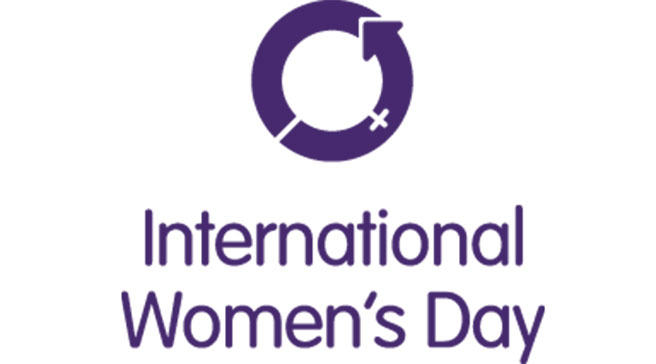International Women’s Day: Who do we admire?
To celebrate International Women’s Day, we decided to write a few sentences about the women, past and present, which inspire and have influenced us. In our enthusiasm for the topic, what resulted were whole paragraphs (and in some cases, pages) of words about the women we admire the most.

To celebrate International Women’s Day, we decided to write a few sentences about the women, past and present, which inspire and have influenced us. In our enthusiasm for the topic, what resulted were whole paragraphs (and in some cases, pages) of words about the women we admire the most.
Suzy Greaves, editor – My mum Sylvia Atkinson was an entrepreneur, a woman full of ideas and vision. She was a loving mum to my brother and I, ran her own business as well as holding down a full time job. She taught me to independent and to make my own way in life. Always in an inspiration. Thank you mum.
Emine Ali-Rushton, beauty and wellbeing director – Nobel Prize winning novelist and lecturer, Toni Morrison. I first read her seminal novel on slavery, <Beloved>, while at school, and went on to study all of her work, and later meet her while writing my dissertation on African-American literature at Durham University. She is a ferocious writer – bold, brave, linguistically incredible – and has consistently written about women’s issues and race – both in fiction and literary criticism – in a bid to get these important ‘minority’ issues heard, and social mindsets altered. She has gone on to teach generations of English Literature and Creative Writing students at both New York university, and Princeton – and incredibly, all of this alongside being a single mother to two boys, writing her novels at night while they were in bed… her vision, spirit and talent will always inspire me.
Anne-Claire Laughman, sub editor – Growing up I always liked reading books by women about the lives of girls, people like LM Montgomery (who wrote the fictional Anne of Green Gables series) and Laura Ingalls Wilder (the autobiographical Little House On The Prairie series) and then a bit later had a real phase of reading books or watching films about strong women, especially war stories, like Anne Frank’s diary (I also always thought there wasn’t enough about the woman who hid them, Miep, as I thought she was pretty remarkable) or Violette Szabo going into occupied France. In terms of my own time I always admired Ireland’s first female president, Mary Robinson, who went on to work at the UN and has her own foundation now, she is an intelligent woman doing good work, always for those who most need it, the kind of person you’d be proud to have represent your country. The women who inspired me most though were ordinary ones in my own life, I had a couple of great teachers in school who encouraged and educated in the best way, some great and interesting lecturers at university who got me thinking at a time when I was forming my views on stuff, my mother and aunts who are nurses and all worked when we were kids, my aunt who’s a nun and works tirelessly and so humbly for those less fortunate than ourselves, even now in her late seventies, and my gran who brought up 10 children alone having been widowed at only the age of 40 in poverty-stricken 1950s rural Ireland. They all shaped me, one way or another.
Lynne Lanning, acting art director – Charlotte Bevan, sadly passed away this January from a second round of breast cancer. Her teenage daughter was going through anorexia at the same time as my own. We found each other through an online forum called ‘Around the dinner table’. The forum has grown from a few people into a huge international support group called FEAST-org around the world for parents with children who are suffering through this illness. Charlotte became the UK advocate, fighting for better treatment for children and better support for parents. She fought tirelessly throughout her cancer, even after it was diagnosed as terminal. Charlotte was simply the best mentor for all parents who found the website. Towards the end she was still supporting a couple of parents whose children had been enduring the most antiquated treatment. I never met her and neither did many of the parents who ‘talked’ to her online. When she died the messages of support and grief were demonstrative of who she was. One mum in America wrote, ‘she was quite simply the best friend I never met’.
Ali Roff, Dossier and The Fix editor – When I think of a woman, one I truly admire for her strength, the name Emily Davidson always appears in my mind. Jailed nine times and force-fed on nearly 50 occasions, her fight and determination for women’s rights was unwavering. In 1913, five years before women over 30 gained the right to vote in Britain, Emily ran in front of the King’s horse at the Epsom Derby to protest the cause and died as a result of her injuries. The fact that she was willing risk death in such a public and painful way for women’s rights both inspires and stuns me at the same time. The suffragettes’ campaign 100 years ago has allowed us today so many opportunities that they didn’t have then. There is still more to be done, but their inspirational fortitude, bravery and sacrifice reminds me how important gender equality was then, and still is. I admire Emily’s strength and ability to stand up and fight for what she believed in, and thank her for giving up so much to ensure that women could have more today.
Lauren Hadden, deputy editor – My shout-out is for a selection of my favourite writers. These are my girls; the ones who make sure their words are heard:
Siri Hustvedt, who says: ‘Lots of women read fiction. Most men don’t. Women read fiction written by women and by men. Most men don’t. If a man opens a novel, he likes to have a masculine name on the cover; it’s reassuring somehow. You never know what might happen to that external genitalia if you immerse yourself in imaginary doings concocted by someone with the goods on the inside.’ Margaret Atwood, who says: ‘Men are afraid that women will laugh at them. Women are afraid that men will kill them.’ Anne Enright, who says: ‘Someone asked me to do a conference recently because they wanted a woman’s voice so I said, “You don’t know me from a hole in the ground but at this stage any hole will do…” When women have been silent so long you have to read the silences really urgently. The silences, and also the elisions and the slippages’. And Zadie Smith, who says: ‘I was brought up with the sense that I was absolutely no different from my brothers. I went to college thinking I was absolutely no different from the men in college. But that’s not true. I’m fundamentally different. The problem was not being able to understand difference and equality at the same time. It’s something that we can’t seem to comprehend. You can’t state difference and also state equality. We have to state sameness to understand equality. It’s a mistake.’
And who also says: ‘Don’t live in a way that makes you feel dead.’ Just some things to think about today… You don’t have to agree with it all, but you can be glad women are writing, and being read. Keep writing, keep talking, keep making your words heard.’
The Aspire Foundation is running their ‘Remembering Ordinary, Extraordinary Women’ campaign to celebrate International Women’s Day. They’ve been collecting your stories about the women who have inspired you. You can read them here.
Tweet to us your inspirational women @psychologiesmag #womensday.
–








